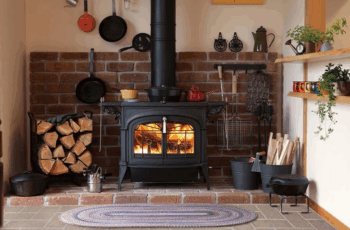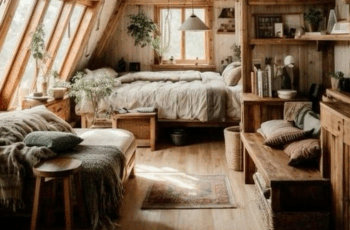
Owning a cabin is a special kind of joy. It means stepping away from the busy noise of city life and finding peace close to nature. Sitting by the fire in winter or soaking up the summer sun outside — that simple, cozy lifestyle is what makes cabin living so rewarding. Plus, there’s something deeply satisfying about fixing things yourself and keeping your little retreat in good shape.
That said, owning a cabin isn’t without its challenges. Most cabins sit in remote spots, which can make maintenance trickier and sometimes more expensive. Weather can be harsh — rain, snow, and strong winds take a toll on wooden structures, leading to issues like moisture damage or insect problems. Plus, getting repair help or materials might not be easy, so staying on top of upkeep is a must.
Regular maintenance isn’t just about keeping things looking nice. It’s what protects your cabin’s structure, extends its life, and keeps it comfortable and safe to live in.
Wooden cabins, in particular, need attention because they’re vulnerable to weather and natural wear. Without regular check-ups, problems like rot or cracks can sneak up fast and cause bigger headaches down the road.
Beyond the wood itself, key parts like your roof, drainage, and foundation deserve regular looks too. Ignoring these can lead to water damage or foundation shifts, which are costly fixes. And don’t forget the systems that make your cabin livable — ventilation, water, and electricity all need regular checks to keep things running smoothly and safely.
When you keep up with maintenance through the seasons, your cabin will stay strong longer, feel better to live in, and save you money by preventing expensive repairs later.
Why Keep Up With Cabin Maintenance?
- Make Your Cabin Last Longer
Small issues can turn into big problems if ignored. Taking care of wood, controlling moisture, and keeping pests away all help your cabin stand the test of time. - Keep It Safe
Seasonal inspections catch problems before they cause leaks or structural damage, keeping your home secure through every season. - Save Money
Fixing small things early, like cleaning gutters or sealing cracks, is way cheaper than waiting for major repairs. - Stay Comfortable
Proper maintenance keeps your cabin cozy—sealing drafts in winter, cleaning vents in summer, and making sure your indoor air stays fresh. - Be Energy Efficient
Well-maintained systems use less energy, helping your bills stay lower and reducing your environmental impact. - Protect Against Weather
Seasonal prep, like insulating pipes before winter or trimming trees in summer, helps protect your cabin from storms, freezing, or fire risks. - Keep Your Property Value Up
If you ever want to sell or rent your cabin, good maintenance makes it more appealing and valuable.
Spring Maintenance
- Look over your foundation, walls, and roof for any winter wear or damage.
- Clear out gutters and drainage — get rid of leaves and debris that piled up.
- Treat and seal wood surfaces to fend off moisture and bugs.
- Fix or replace any damaged wood pieces.
- Clean window seals and ventilation to get ready for warmer days.
Summer Maintenance
- Check your water pipes and supply system for leaks or clogs.
- Clean gutters and drainage channels again to keep water flowing smoothly.
- Trim trees and bushes near the cabin to reduce fire risk.
- Inspect decks, fences, and patios for sun damage and fix what’s needed.
- Keep an eye out for pests and use natural repellents if you spot any.
Fall Maintenance
- Prepare your cabin for winter warmth by checking seals on windows and doors.
- Clean out the chimney and fireplace so they’re safe to use.
- Remove fallen leaves from roofs and gutters promptly.
- Make sure your rainwater drainage system is clear and working.
- Trim tree branches before snow arrives to avoid breakage.
Winter Maintenance
- Insulate exposed water pipes to stop freezing and bursting.
- Keep an eye on your heating system and indoor temperatures.
- Remove snow build-up from roofs to prevent damage from weight.
- Clear snow around your cabin to stop water from seeping into the foundation.
- Test smoke and carbon monoxide detectors regularly for safety.
- Check your emergency supplies to be ready for winter storms.


